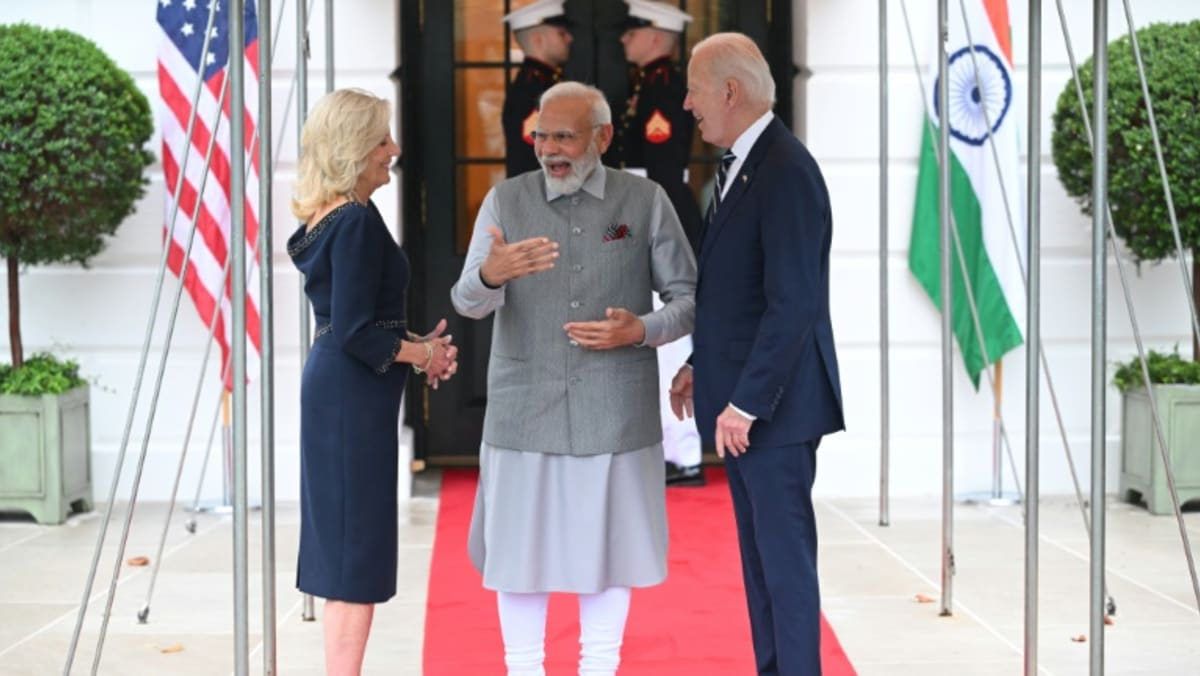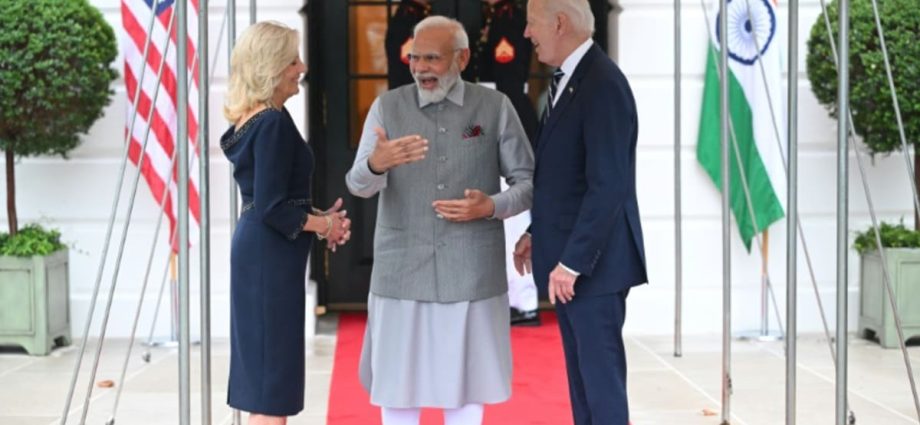
Since taking office in 2014, India has passed a controversial law on citizenship, abrogated the special status of Muslim-majority Kashmir and has seen police and vigilante violence against minorities, with a US State Department report pointing to inflammatory rhetoric from members of Modi’s Bharatiya Janata Party.
Modi has also faced criticism for police raids on media outlets and the expulsion from parliament of the opposition leader.
Several Democratic lawmakers said they would boycott Modi’s address to a joint session of Congress. Among them was Representative Alexandria Ocasio-Cortez, a prominent progressive, who said she wanted to make a stand for “pluralism, tolerance and freedom of the press”.
Dozens of other Democrats in a letter urged Biden to raise concerns “in an honest and forthright way,” although they stopped short of boycotting and backed closer ties with India.
Former president Barack Obama, in an interview with CNN, said that Biden should raise concerns privately with Modi, warning that without protection of minorities, “there is a strong possibility at some point that India starts pulling apart.”
MAJOR DEFENCE DEALS
Aside from his gentle nudging on rights, Biden offered full honours to Modi including a gala dinner, with First Lady Jill Biden tapping a celebrated Californian plant-based chef to cook for the strictly vegetarian prime minister.
In an agreement hailed by Modi as landmark, the United States signed off on a technology transfer for engines as India begins producing homegrown fighter jets.
General Electric will have the green light to produce its F414 engines jointly with state-owned Hindustan Aeronautics.
A US official said India would also buy MQ-9B SeaGuardians, high-precision armed drones. India in 2019 broke precedent with an airstrike in Pakistani territory against an alleged extremist camp.
Washington hopes a tighter defense relationship will help wean India off Russia, New Delhi’s primary military supplier during the Cold War.
The Biden administration has largely given a pass to India for refusing to join Western sanctions on Russia and instead buying its oil at a discount, seeing a broader alignment with India on the challenge of China and the threat of radical Islamism.
In another agreement, US chip giant Micron will invest US$800 million in a semiconductor assembly and testing plant in India, which is expected to reach US$2.75 billion after contributions from New Delhi.
The United States is looking to stop the flow of high-end chips to China, fearing that the communist state will dominate the next generation of technology, although Micron also recently announced a US$600 million investment in China.
India, a growing power in space, also agreed during Modi’s visit to join the Artemis Accords, a US-led multinational effort to put a human back on the Moon by 2025.
As part of the cooperation, India’s space program will work with NASA on a joint mission to the International Space Station next year.

